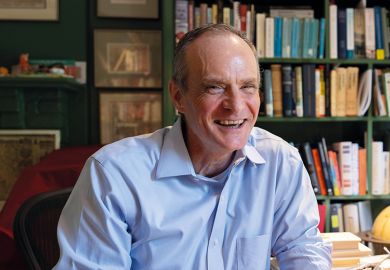Andrew Sayer's Radical Political Economy reminds us of the degree of misinterpretation of the 1970s and why the influential dominance of radical political economy has faded since the early 1980s.
The aim of his work is to "re-evaluate radical political economy, particularly in terms of its treatment of division of labour and the distribution of knowledge and power in advanced economies". Sayer's critique centres on the problems for radical political economy caused by the rise of liberalism and the role of markets in a more global world. By including an analysis of liberalism and markets, he wants to show the importance of classical political economy for our understanding of contemporary social life, and that the retreat from radical political economy had more to do with a shift into middle range theory and empirical work than the paucity of its explanatory powers.
By starting with questions of method and ontology, the context for a reconceptualisation of the division of labour and economic power, markets and other modes of coordination, ownership and control and a comparison of non-capitalist systems is established. Sayer wishes to retain the importance of abstract theory in political economy but makes a claim for a disaggregative approach. In doing so, he is in danger of reinforcing middle range theory at the expense of more exacting abstraction. The reductionist treatment of the division of labour in much of radical political economy is rightly noted. Sayer's analysis of class and his demand that questions of gender, race and sexual orientation are equally important arises because he conflates abstract and concrete labour. These quibbles are compensated for by an interesting analysis of Hayek's "catallaxy".
In reviewing liberal and radical standpoints, Sayer does miss the ethical dimension in Adam Smith's invisible hand, which allows markets to be socialising agencies. But by linking the role of markets to questions of ownership and control, Sayer develops a comprehensive account of economic coordination and divisions of labour. This allows him then to sketch out the implications for noncapitalist systems. Sayer's critique of radical urban development theories is the least convincing in terms of the book's more abstract purpose.
Sayer points to the need for radical political theory but of a different kind than hitherto. If the newer variant draws on our friends from the classical past, Malthus, Marx, Mill, Ricardo and Smith, then we will have an enhanced ability to theorise the social universe we inhabit.
Leslie Budd is senior lecturer in economics, London Guildhall University.
Radical Political Economy: A Critique
Author - Andrew Sayer
ISBN - 0 631 19374 X and 19375 8
Publisher - Blackwell
Price - £40.00 and £12.99
Pages - 2
Register to continue
Why register?
- Registration is free and only takes a moment
- Once registered, you can read 3 articles a month
- Sign up for our newsletter
Subscribe
Or subscribe for unlimited access to:
- Unlimited access to news, views, insights & reviews
- Digital editions
- Digital access to THE’s university and college rankings analysis
Already registered or a current subscriber?



